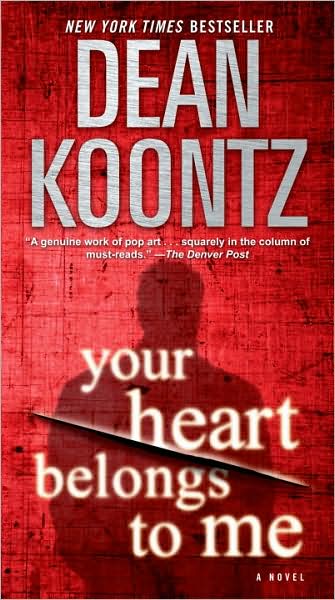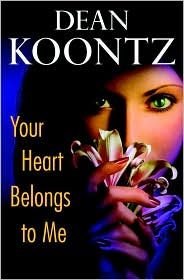Way back last week I threw down a gauntlet and asked for all of your entries to Amishtakes, an Amish vampire fiction contest—and did you ever deliver. After painstakingly parsing textual nuances and quantifying the salability of your submissions on the organ black market, I have chosen a winner.
Sean Ferrell’s novel beings, “Jebediah, Lord of the Night, spying the townsfolk walking toward him with grim determination set above their mustacheless beards and below their bonnets, hissed, ‘To my wagon, and away!’”
So congratulations, Sean—you are clearly a handsome devil and must charm the pants off of all of the ladies and/or gentlemen, depending on your preference. And serious props to all participants—choosing a winner may have been the hardest thing I’ve ever had to do, and I wholeheartedly encourage you late joiners to read through all of the entries. Fully letting the wide response go to my head, there’s a Hitler romance contest in the last paragraph (the word "contest" is in bold, if you don't feel like reading all the way through. I'll understand).
If you click on nothing else (but I hope you clicked on many things), check out Lifehacker’s bookworm guide to everything, and the 10 days in Google Books game, which is supposed to convince you that copyrights schmopyrights, Google Books is fun!
As we all remember, last week Amazon got all that flack for removing books from Kindles. This week, they just can’t win. Again. There’s an Amazon phishing fraud running around, their North America media sales are flat, and they’re being sued in Germany for selling books that deny the Holocaust. To top it all off, Nicholson Baker slams the Kindle 2 in his New Yorker review (and it turns out some people like their Kindles because they are “creeped out” by library books. What if a child with sticky fingers touched a book? What if poor people got their poor germs all over things I want to read? For those of you in search of a margin muse without actually using the same books as other people, someone created a feature that lets multiple people write in the e-margins of a book, so you can get that sticky fingers, poor people feel without leaving your protective antibacterial bubble).
Given all this, it’s a good thing Amazon has no e-competition for e-books. Except for that whole Barnes & Nobles e-book software thing. And the B&N partnering with PlasticLogic (a company in the process of putting out an e-reader, and partnered with AT&T’s 3G network) thing. And the free wifi in all Barnes & Nobles stores thing. And the B&N reader topping Amazon in the Apple App Store thing. But other than that, seriously, no competition.
Sony is planning on launching a reader with wifi, and Apple is once again going to blow our minds by coming out with a tablet-type-computer in September that can be used as an e-reader, and that is basically a giant iPod Touch. You go, Apple, continually churning out really similar products with slight tweaks that we all keep buying. Seriously—how do they do this? I know I should be scornful but it just all looks so sleek...
Never one to be left behind, Borders is cornering the e-book market by…expanding its in-store teen section? With graphic novels and manga? Way to keep up with the times. I’m oddly comforted by the Borders ban on employee blogging—it proves that the corporate office has at least heard of the internet.
In this new teen section at Borders you’ll probably find racy novels written by high school teachers for their students, to encourage them to read (“reading” is what the kids are calling it these days. Just FYI), as well as the new teen version of The Secret. I think the secret might be keeping sexy novels you wrote for your students off the internet. Talk to your Harry Potter rabbi about how this makes you feel, and he’ll set you right with some choice bon mots about Dumbledore and self respect.
This week in children’s books has been rough, especially for The Giving Tree, as it apparently enforces bad morals. And be careful of those racist children’s classics. That’s right. All of them. Racist. Despite it all, kids want to be read more stories at bedtime, those cute ragamuffins.
I’m not going to link to the new clips for the new Twilight movie, because, well, I just don’t care. But I will link to this featurette about Where the Wild Things Are, and bounce around excitedly.
I’m not alone in the Twilight burnout—Jeff Cohen hates the current iteration of the vampire, saying the chaste yet sexy, bloodless vampire is like the hooker with a heart of gold: a fantasy. Ok, well, any kind of vampire is a fantasy, but I get his point. I’m a little torn, though, because without Twilight we would not get this joy of joys:
Can you resist the allure of Edward’s myriad charms—his ochre eyes and tousled hair, the cadence of his speech, his chiseled alabaster skin, and his gratuitous charm?
Yes, my friends, it’s a Twilight SAT prep book! You can use it to help you understand these Twilight tattoos. And never worry, tattooed literary elitists—there’s a venue for your twee hipster e e cummings tattoos as well (or you can cover them up by dressing like a foppish Oscar Wilde).
Don DeLillo's Cosmopolis is being turned into a movie, and will probably be very post-modern. Just like the review a DeLillo character wrote about a David Foster Wallace novel (…which no one noticed). Top off this post-modern moment by reading about the oh-so-meta novels within novels and best novels about novelists.
As I close, I would like to share with you some of my likes and dislikes. So likes: Aldous Huxley on beach reads, and Ben & Jerry’s library flavors. Dislikes: Hitler. But if you’re a fan, or if you just have a spare ₤20,000 lying around, you can own a signed copy of Mein Kampf, inscribed:
Herrn Johann Georg Maurer. In memory of our time together in prison in Landsberg. Cordially dedicated by Adolf Hitler. Christmas 1925.
Maurer and Hitler: a great love story, or the greatest love story? So the contest: write the best first lines of a Hitler romance novel, which you should leave in the comments. Please aim for charmingly hilarious, not emotionally scarring, for my sake. The winner will be featured next time, here on “Who is this Laura person and why can’t she focus on book sales?”







